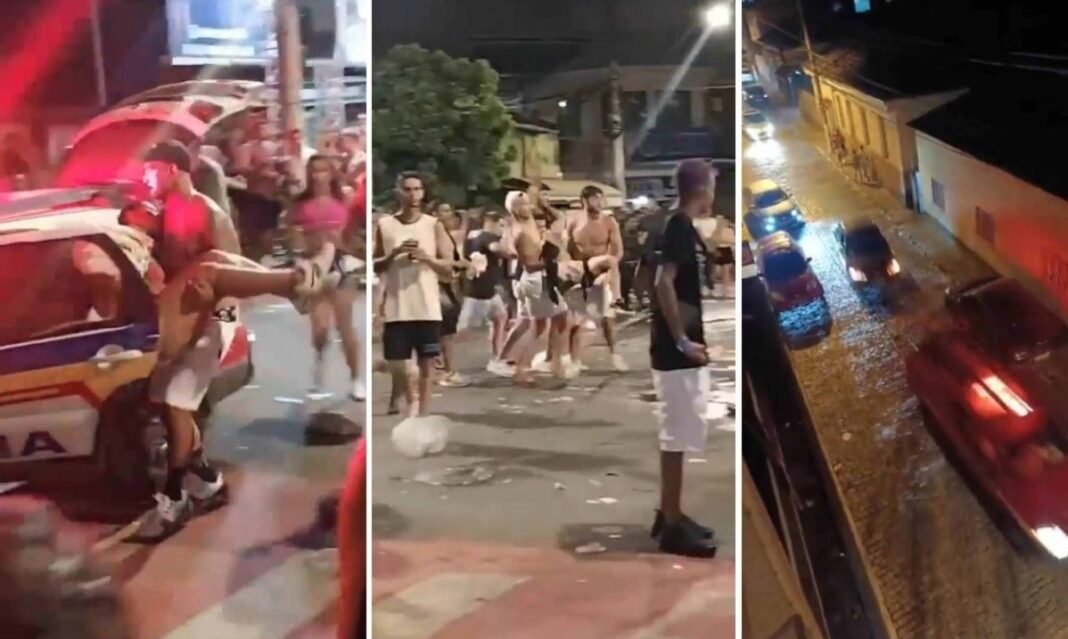During Carnival 2025, major Brazilian cities such as São Paulo, Rio de Janeiro, and Salvador recorded a decline in thefts, robberies, and violent crimes, attributed to increased police presence, undercover operations, and the use of advanced technologies like drones and facial recognition. However, incidents of violence and police clashes were reported in other cities. In Porto Alegre and Juiz de Fora, conflicts between people and law enforcement resulted in the use of pepper spray and stun grenades. In Pernambuco, a shooting at a concert left seven people injured, while in Rio Pomba, Minas Gerais, another shooting resulted in one death and 14 injuries, leading to the cancellation of local Carnival celebrations.
This Content Is Only For Subscribers
To unlock this content, subscribe to INTERLIRA Reports.
São Paulo
Between 28 February and 4 March, 828 cases of cell phone thefts were recorded in the capital of São Paulo, compared to almost 1,300 occurrences the previous year. Thefts also fell from 2,255 to 1,700 cases. The increase in the number of officers, the use of costumes by police officers, and the support of technology, such as drone monitoring, were part of the security forces’ plan to reduce crime rates during Carnival. According to the PM, this was the safest Carnival since the resumption of festivities after the pandemic.
Rio de Janeiro
In Rio de Janeiro, crime rates also fell in 2025. Police data show a 25% reduction in robberies, a 33% reduction in cell phone thefts, and a 9% reduction in violent deaths.
Salvador
In Salvador (Bahia), the facial recognition system, combined with the security forces, ensured the capture of 55 fugitives from justice. Robberies fell by 33% and thefts by 32%. Awareness campaigns and the use of cell phone tracking technologies have helped attendees prevent thefts and robberies.
Confusion in Porto Alegre
Porto Alegre saw a scuffle between military police and people who were spending the early hours of Saturday (01/03) of Carnival in bars in the Cidade Baixa neighborhood. The place is known as a bohemian stronghold in the capital of Rio Grande do Sul. In a video, it is possible to see a person restrained by police officers on the ground of a sidewalk. One of the officers appears with his knee on a woman. Images circulating on social media also show the use of what would be pepper spray in the action by the Military Brigade, the Rio Grande do Sul Military Police. The scuffle reportedly began after police officers alleged contempt on Rua General Lima e Silva. In a statement, the Military Brigade declared that the intervention was necessary due to a “disorder” involving people who were blocking a road.
Dispersal in Minas Gerais
A Carnival block ended in a scuffle with the Military Police on Saturday night (01/03) in the city of Juiz de Fora (Minas Gerais). People claim that the Military Police dispersed the block with pepper spray and stun grenades. The Military Police said that the incident involved contempt, resistance, disobedience, incitement, and promotion of violence. Three people were taken to the police station.
Shooting in Pernambuco
A shooting during a concert by singer João Gomes, at Praça, do Carmo, in Olinda (Pernambuco), in the early hours of Wednesday (05/03), left seven people injured. The victims, aged 19 to 37, were hit by gunshots and rescued by the Military Police. The Civil Police of Pernambuco began investigating the case and are investigating the attempted murder. So far, there is no information about the motive for the crime or the identity of the perpetrators.
Carnival Canceled
A shooting on Monday night (03/03) during Carnival ended with one person dead and 14 injured and culminated in the cancellation of the festivities in Rio Pomba (Minas Gerais) and another city in the Zona da Mata region of Minas Gerais. The exchange of gunfire occurred during a street party performance at Dr. Último de Carvalho Square. Two men, aged 24 and 26, involved in the shooting were arrested.
Analysis:
The data from Carnival 2025 reflect a complex picture of public security in Brazil. On one hand, the decline in thefts, robberies, and violent crimes in São Paulo, Rio de Janeiro, and Salvador suggests that the combination of increased policing, technological advancements, and preventive strategies is yielding positive results. The use of facial recognition, drones, and undercover operations demonstrates how intelligence-led policing can enhance security during large-scale events.
However, the episodes of police clashes in Porto Alegre and Juiz de Fora, as well as the shootings in Pernambuco and Minas Gerais, highlight ongoing challenges. The confrontations between law enforcement and people raise concerns about the proportionality of police interventions and the potential escalation of violence in situations that might have been handled with better de-escalation tactics. The shootings in Olinda and Rio Pomba also emphasize the persistent issue of armed violence and the need for stronger measures to prevent firearms from circulating in public spaces.
While some cities benefited from technological tools, others still struggle with reactive policing rather than proactive crime prevention. The discrepancies in security outcomes suggest that a more standardized, intelligence-driven approach across different states could help mitigate violence and improve public security during major events.
Sources: A Folha de SP [1], [2], [3], [4]; Governo do Estado do RJ; BandNews; G1; SBTNews.




